Self-Help
The path to recovery is different for every victim of a mass violence incident. Self-help resources may be useful as a way to begin your own healing process or to provide help to a child or someone close to you. These resources are not a substitute for treatment from a health care professional, but they may help you learn important skills and coping strategies.
For information about crisis counseling, victim assistance services, legal assistance, or finding a therapist, click here.
People may have a variety of reactions after a mass violence incident. These reactions may be experienced by:
- Victims who were directly affected by the incident
- Family, friends and others who are closely associated with a victim
- People who witnessed or heard details about the incident
The following tip sheets can help you understand common trauma reactions that people may have after a mass violence incident.

Twelve Self-Help Tips for Coping
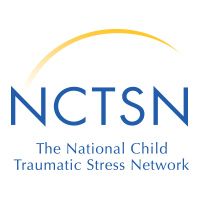
NCTSN - NATIONAL CHILD TRAUMATIC STRESS NETWORK
College Students: Coping after the Recent Shooting
Offers information for college students on how to cope after involvement in a shooting. This fact sheet provides information on common trauma reactions, and what they can do for themselves.

SAMHSA - SUBSTANCE ABUSE AND MENTAL HEALTH SERVICES ADMINISTRATION
Tips for Survivors of a Disaster or Other Traumatic Event: Managing Stress
Describes possible emotional, physical and behavioral reactions to a disaster or traumatic event to help survivors identify early warning signs of stress, and provides practical tips for relieving this stress.

SAMHSA - SUBSTANCE ABUSE AND MENTAL HEALTH SERVICES ADMINISTRATION
Tips for Survivors: Coping with Grief after a Traumatic Event
Provides information about grief, the grieving process and complicated or traumatic grief. It also offers practical coping tips for those who are personally experiencing grief following involvement in a traumatic event.

SAMHSA - SUBSTANCE ABUSE AND MENTAL HEALTH SERVICES ADMINISTRATION
Tips for Survivors of a Disaster or Traumatic Event: What to Expect in Your Personal, Family, Work and Financial Life
Helps survivors of disasters or traumatic events better understand what to expect in their personal, family, work and financial lives in the days and weeks after the incident. Provides tips for coping with and managing these changes, and details signs that may show that a survivor needs more help managing their stress.
The following tip sheets describe strategies that may help someone cope after a mass violence incident. Everyone is different. What works for some may not work for others.
Professional treatment may be helpful to you if you have had troubling thoughts and feelings that create significant problems in different areas of your life, and these have affected you for more than a few days or weeks.

Coping With The Holidays After The Death Of A Loved One

Managing Distress

Mindfulness and Meditation
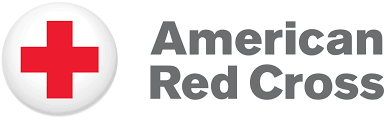
RED CROSS
Taking Care of your Emotional Health After a Disaster
Describes the feelings and emotions that a survivor may be experiencing after a disaster, and provides tips for taking action to overcome these. This tip sheet also suggests steps to follow if you or your loved one needs additional help to improve their emotional health.

THE NATIONAL SLEEP FOUNDATION
Trauma and Sleep
Describes common sleep problems following trauma and provides trauma-informed sleep tips for survivors.

Mindfulness and Meditation to Support Resilience
Mass violence incidents can be especially difficult for children and teenagers. Parents and caregivers can play an important role in the recovery process. These resources can help parents and caregivers understand common behaviors and reactions their child may have and how to help them cope.

NCTSN - NATIONAL CHILD TRAUMATIC STRESS NETWORK
Parent Guidelines for Helping Youth after the Recent Shooting
Describes common reactions experienced by children and teens following involvement in a mass shooting, and suggests things that parents and caregivers can do for their child to help them cope. Self-help tips for parents and caregivers are also provided.

NCTSN – NATIONAL CHILD TRAUMATIC STRESS NETWORK
Self-Care Strategies for Teachers and Providers
Provides self-care strategies for teachers or providers who are helping students cope after a traumatic event.

NCTSN - NATIONAL CHILD TRAUMATIC STRESS NETWORK
Helping Young Children with Traumatic Grief: Tips for Caregivers
Helps parents and caregivers recognize traumatic grief responses in young children and provides tips for helping the child cope with their loss.

NCTSN - NATIONAL CHILD TRAUMATIC STRESS NETWORK
Tips for Parents on Media Coverage: Shooting
Offers information about media coverage following a shooting and details what parents and caregivers can do to protect their children. This tip sheet also provides recommendations for families that have become part of the media’s story.

NCTSN - NATIONAL CHILD TRAUMATIC STRESS NETWORK
Helping School-Age Children with Traumatic Grief: Tips for Caregivers
Helps parents and caregivers recognize traumatic grief responses in school-age children and provides tips for helping the child cope with their loss.

NCTSN - NATIONAL CHILD TRAUMATIC STRESS NETWORK
Psychological Impact of the Recent Shooting
Describes the psychological impact that a shooting has on children and families. Outlines common reactions to shootings such as posttraumatic stress reactions, grief reactions, depression, physical symptoms, trauma and loss reminders, traumatic grief, post-disaster adversities, and coping after catastrophic violence.

NCTSN - NATIONAL CHILD TRAUMATIC STRESS NETWORK
Helping Teens with Traumatic Grief: Tips for Caregivers
Helps parents and caregivers recognize traumatic grief responses in teens and provides tips for helping the teen cope with their loss.

NCTSN - NATIONAL CHILD TRAUMATIC STRESS NETWORK
Talking to Children about Mass Violence
Offers guidance and helpful tips on how to talk to children about mass violence and when to seek extra help.

NCTSN - NATIONAL CHILD TRAUMATIC STRESS NETWORK
Talking to Children about the Shooting
Offers guidance and helpful tips on how to talk to children about a shooting and when to seek extra help.

NCTSN - NATIONAL CHILD TRAUMATIC STRESS NETWORK
Tip Sheet for Youth Talking to Journalists about the Shooting
Provides tips for youth, parents, and caregivers on how to interact with journalists after a mass violence event or shooting. Helps parents and children identify a good reporter and better understand their rights when conducting an interview.

NCTSN - NATIONAL CHILD TRAUMATIC STRESS NETWORK
After a Crisis: Helping Young Children Heal
Provides information on how to help young children heal after a traumatic event.

NCTSN - NATIONAL CHILD TRAUMATIC STRESS NETWORK
Parent Guidelines for Helping Youth After Mass Violence Attack
Describes common reactions experienced by children and teens following involvement in a mass violence incident, and suggests things that parents and caregivers can do for their child to help them cope. Self-help tips for parents and caregivers are also provided.
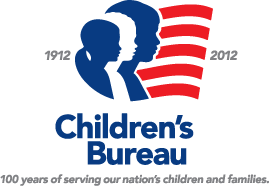
CHILDREN’S BUREAU
Parenting a Child Who Has Experienced Trauma
Provides information on types of trauma and the effects of trauma on children and youth. Tips for helping a child who has experienced trauma are also provided.
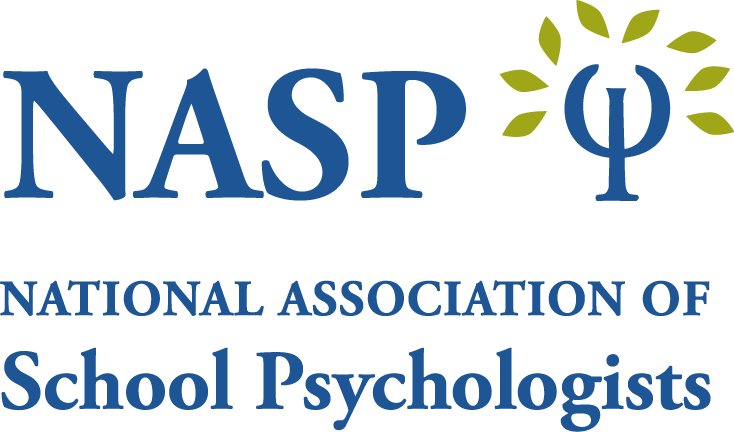
NASP - NATIONAL ASSOCIATION OF SCHOOL PSYCHOLOGISTS
Talking to Children About Violence: Tips for Parents and Teachers
Offers tips for talking with children about violence, including specific points to emphasize in conversations following the violent event.

SAMHSA - SUBSTANCE ABUSE AND MENTAL HEALTH SERVICES ADMINISTRATION
Tips for Talking With and Helping Children and Youth Cope After a Disaster or Traumatic Event: A Guide for Parents, Caregivers and Teachers
Helps parents and caregivers recognize common reactions of children after experiencing a disaster or traumatic event.

NCTSN - NATIONAL CHILD TRAUMATIC STRESS NETWORK
Helping Youth After Community Trauma: Tips for Educators
Lists common reactions educators might see in the students with whom they work and suggestions on how they may help after community trauma. This tip sheet describes how traumatic events, such as a natural disaster, school violence, or the traumatic death of a peer or educator, can affect students’ learning, behavior, and relationships.

NCTSN - NATIONAL CHILD TRAUMATIC STRESS NETWORK
Guiding Adults in Talking to Children About Death and Attending Services
Provides ways to navigate questions about death, funerals, and memorials for children. This fact sheet discusses this challenging, but manageable, task and includes sample questions and answers to help guide discussions.

Supporting Children After Mass Violence Events: Resources for Educators
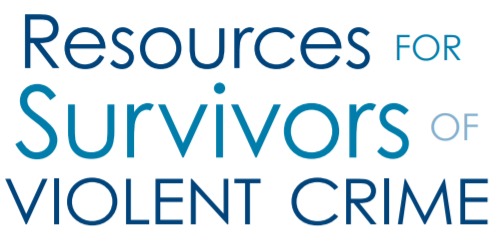
CRIME SURVIVORS, INC.
Dealing with the Media – Your Rights

PRIFYSGOL BANGOR UNIVERSITY
Tips for Talking to the Media

THE NATIONAL CHILD TRAUMATIC STRESS NETWORK
Tips for Youth (How to talk to journalists after mass violence)
Self-help applications are not a substitute for face-to-face treatment from a mental health professional, but those affected by mass violence incidents may find that these tools help with the recovery process.

TRANSCEND
The NMVVRC has developed the Transcend app to assist with recovery from the psychological and behavioral response that can occur following direct or indirect exposure to mass violence incidents. Although the app was developed specifically for mass violence victims, people exposed to other types of stressful events are also likely to find the strategies and techniques in the app to be useful in their recovery, as well.
Other mobile self-help apps that we recommend:
*The following applications were not created by the National Mass Violence Victimization Resource Center. Technical support for these programs therefore cannot be provided by NMVVRC faculty or staff. Please seek assistance from a medical professional if symptoms persist or worsen.
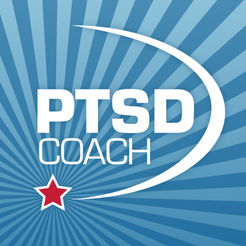
PTSD Coach
The PTSD Coach app can help you learn about and manage your trauma-related symptoms, such as nightmares, intrusive thoughts or images about the trauma, and high levels of anxiety or arousal. This app provides tips and coping strategies, as well as tools for tracking your symptoms.
Download it for free here:
